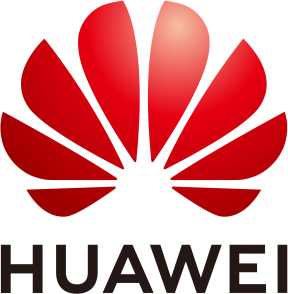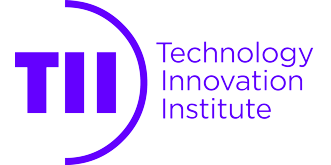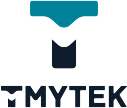Scope
In today's ever more interconnected global landscape, the telecommunications industry assumes a pivotal role in facilitating seamless communication and propelling the digital transformation of businesses and societies alike. As we set our sights on the future, the forthcoming phase of telecom network development promises an intriguing voyage towards increased autonomy and enhanced convergence. This panel endeavors to scrutinize the potential technological advancements and transformative shifts that will undoubtedly define the telecom network ecosystem in the forthcoming years with the experts from academia and industry.
Panel Questions
1. What are the main challenges and barriers to achieving autonomous networks in terms of technology, standardization, regulation, and culture?
2. How do you envision the future of autonomous networks in the next 5 to 10 years? What are the main trends and opportunities that you anticipate or aim for?
3. What is the current state and progress of autonomous networks in your domain or region?
4. What are the main achievements and challenges that you have experienced or observed?
5. How do you balance the trade-off between autonomy and human intervention in your network management and operation? What are the main criteria and factors that you consider or apply?
6. How do you cope with the increasing complexity and uncertainty of network environments, demands, and scenarios? What are the main strategies and solutions that you adopt or propose?
7. How do you leverage the latest advances in artificial intelligence, machine learning, and data analytics to enable autonomous networks? What are the main challenges and limitations that you face or foresee?
8. How do you ensure the interoperability and compatibility of autonomous networks with other networks, systems, and platforms? What are the main
standards and protocols that you follow or recommend?
9. How do you address the trustworthiness, ethical, social, and legal implications of autonomous networks? What are the main principles and values that you adhere to or advocate for?
10. How do you foster a culture of innovation and learning in your organization to support the development and adoption of autonomous networks? What are the main skills and competencies that you look for or develop in your organization?
11. How do you collaborate and coordinate with other stakeholders in the autonomous network ecosystem, such as vendors, regulators, partners, and
customers as well as academia?
12. What are the main challenges and opportunities that you face or foresee?
Bios
(Moderator) Prof. Dr. V. Çağrı Güngör Güngör, Chief Network Technologies Officer, Turkcell, received his B.Sc. and M.Sc. degrees from Middle East Technical University, Department of Electrical and Electronics Engineering in 2001 and 2003. He obtained his Ph.D. degree from the Department of Electrical and Computer Engineering at Georgia Institute of Technology (Atlanta, GA, USA) in 2007. Receiving the Full-Professor title in 2018, Prof. Dr. Güngör's research areas are in the fields of next-generation wireless communications, 5G and 6G mobile networks, Internet of Things and Artificial Intelligence. Prof. Dr. Güngör served as a project manager at Eaton Corporation, a researcher at Siemens Corporate Research, and an Executive Board Member in the TÜBİTAK TEYDEB BİLTEG. Prof. Dr. Güngör has received many international and national scientific awards. Prof. Dr. Güngör's research projects have been funded by several institutions, such as the European Union, the Ministry of Science, Industry and Technology, and TÜBİTAK. Prof. Dr. Güngör has more than 100 research articles published in international peer-reviewed journals and conferences and several patents.
Prof. Dr. Çiçek Çavdar is a Professor, leading a research group on Intelligent Network Systems at the School of EECS at KTH Royal Institute of Technology in Sweden. She finished her PhD studies in Computer Science, University of California, Davis and in Istanbul Technical University, Turkey in 2009. After her PhD, she worked as an Assistant Professor in Computer Engineering Department, Istanbul Technical University. She served as symposium chair of IEEE ICC 2017 (GCSN), held in Paris. She has chaired several workshops on green mobile broadband technologies and Green Mobile Networks last ten years colocated with IEEE ICC and Globecom. She had leading roles in several European projects in the areas of aerial communications and green networks such as EU EIT Digital projects "5GrEEn: Towards Green 5G Mobile Networks" and "Seamless Direct Air to Ground Communications (DA2GC) in Europe- ICARO-EU". 2015-2018, she served as the leader of Swedish cluster for the EU Celtic Plus project SooGREEN "Service Oriented Optimization of Green Mobile Networks”, and from 2018 she has the same role in the EU Celtic Plus project AI4Green “Artificial Intelligence for Green Mobile Networks”. Her research interests include design and analysis of telecommunication networks with focus on beyond 5G mobile networks, edge/cloud computing, big data in the network, URLLC, energy efficiency, and AI assisted mobile networks. She is the technical coordinator of EU Celtic-Next 6G-SKY - 6G for Connected Sky project started recently.
Dr. Mehdi Bennis is a full (tenured) Professor at the Centre for Wireless Communications, University of Oulu, Finland and head of the intelligent connectivity and networks/systems group (ICON). His main research interests are at the intersection of communication and ML in 5G/6G networks. He has published more than 200 research papers in international conferences, journals and book chapters. He has been the recipient of several prestigious awards including the 2015 Fred W. Ellersick Prize from the IEEE Communications Society, the 2016 Best Tutorial Prize from the IEEE Communications Society, the 2017 EURASIP Best paper Award for the Journal of Wireless Communications and Networks, the all-University of Oulu award for research, the 2019 IEEE ComSoc Radio Communications Committee Early Achievement Award and the 2020-2021 Clarviate Highly Cited Researcher by the Web of Science. Dr Bennis is a Specialty Chief Editor for Data Science for Communications in the Frontiers in Communications and Networks journal and an IEEE Fellow.
Dr. Paul Harvey is a lecturer in Autonomous Systems at the James Watt School of Engineering, University of Glasgow. Here, he is exploring the cross-section of technologies and skills required for safe and meaningful fully-autonomous behaviour of both design and operation. Additionally, he is a working group co-chair in the UN’s ITU-T Focus Group on Autonomous Networks and a visiting researcher at the University of Strathclyde. Paul also possess extensive experience in industrial research, where he was co-founder and research lead of the Rakuten Mobile Innovation Studio, and is a strong believer in open and collaborative research.
Riccardo Trivisonno (Senior Member, IEEE) received M.Sc. and Ph.D. degrees in telecommunications engineering from the University of Bologna in 2000 and 2005, respectively. He joined Huawei Technologies in 2011 and he is currently serving as Head of Network Architecture — Research and Standardization — for the Advanced Wireless Technologies Laboratory, Munich Research Center. Over the past ten years, he has been a leading contributor to the definition and the standardization of 5G network architecture and technologies, delivering to 3GPP Releases 15 - 18 — in the areas of architecture modularization, network slicing, network analytics and QoS—filing ~100 Standard Essential Patent applications. His research focus shifted to 6G enabling technologies since 2020. He has been the Chairman of 6G-IA Pre-standardization WG since 2020, a Board Member of one6G Association since its foundation, in 2021, and he was elected one6G Board Vice-Chair in 2023.








